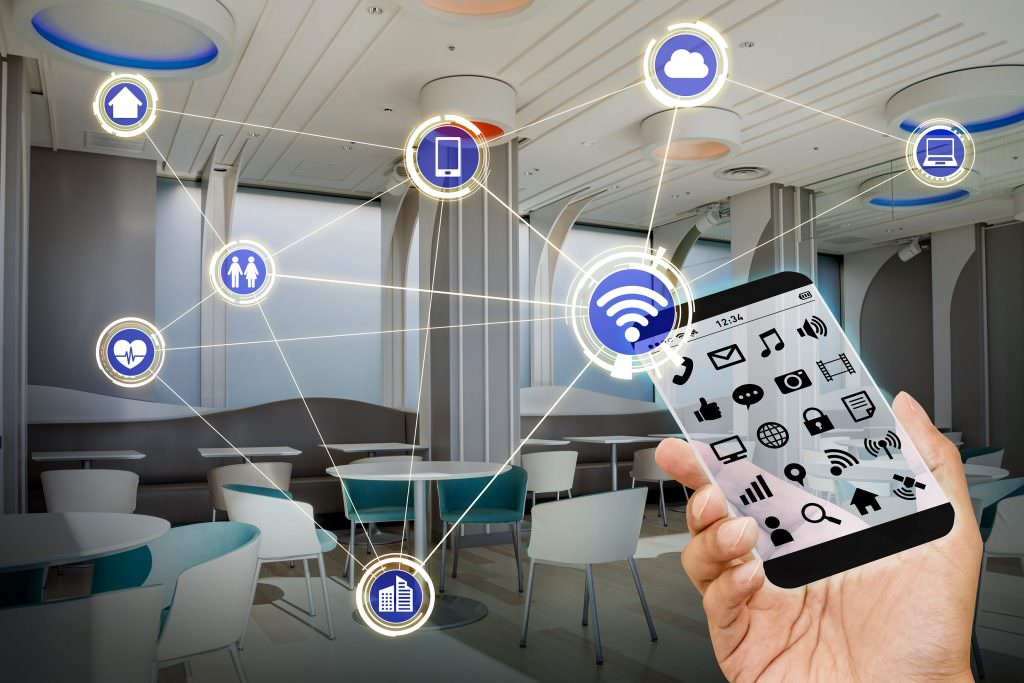


Smart office. Business changing Technologies

2019-10-21
The phrase “smart office” for many people is associated with shots from films about the future, with robots, futuristic design and incredible technology. However, for developed countries, smart technology in business has already become the absolute norm.

There is no single definition of the concept of a “smart home”; in general, it is an automated control system for engineering and other building systems and processes to create productive working conditions and comfort for employees.
Technologies such as the Internet of things and machine learning have undeniably given a huge boost to the development of this technology. Imagine the situation, you come to work, sit down at your workplace and …. the brightness of the lighting becomes the most comfortable for you, heating and air conditioning create the most comfortable temperature for you, and the phone is already asking what you would like for lunch. How it works?
Consider the example of one of the smartest offices in the world, the Amsterdam branch of Deloitte. Each employee has a special application installed on his mobile phone, which is his assistant throughout the working day. When traveling by car, it tells you how many parking spaces are available and where is the nearest free space to the exit. Upon entering the building, the application recommends the optimal place for the employee to work, based on his schedule (there are no jobs assigned to the staff in the office). Approaching the workplace, the brightness of the lighting, the temperature changes depending on the preferences of the person. At the same time, the cafeteria is already making a request for lunch, so the office catering service does not need to cook too much food. Also in the application you can book a meeting room, arrange a meeting with another employee, and even tell the coffee machine what coffee to make.
All this is possible thanks to special software and 28,000 sensors installed throughout the building. And of course, energy efficiency plays a key role here. According to experts, 40% of energy consumption in the world falls on office buildings. The smart office system automatically turns off unused rooms, directs employee flows in such a way as to optimize costs. For example, if the number of employees on a certain day in the office is much smaller, then the computer can disconnect the entire floor or wing of the building from heating and lighting and direct everyone to work on other floors. The building itself is constructed in such a way as to maximize the use of natural lighting and the possibility of heating from the sun. The installed solar panels generate more energy than the building consumes, and on the roof there are tanks for collecting rainwater, which is then used in toilets and for watering plants.
How do such technologies change business?
To begin with, the Edge office is designed for 1000 employees, and 2500 works in it. How is this possible? The lack of fixed jobs allows the self-learning system to find the best location options for employees, and to offer some employees who do not need to work 1-2 days a week at home in the office. Such flexibility of office work makes performing tasks more comfortable and allows employees to choose the most suitable work model for them.
Also, employees of the Amsterdam office of Deloitte company speak about increasing the productivity of their work, because the most comfortable conditions are created for them. In addition, the smart office system takes care of all the concerns not directly related to their work.
With the move to a new office, Deloitte has become much more in demand among the best professionals in the industry. After all, working in such an office is a pleasure!
Thus, the technology of “smart” office immediately covers several problematic issues of any business: cost optimization, staff productivity, and the company’s demand in the labor market. This allows you to focus on the strategic development of the company and solving interesting problems without being distracted by the operation of systems and maintenance services.

 FACILITY
FACILITY 